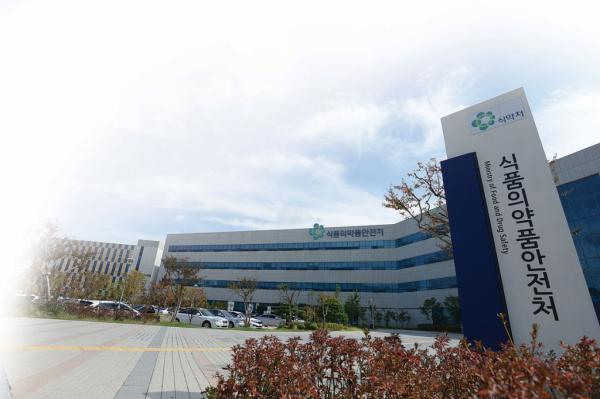The Ministry of Food and Drug Safety (MFDS) will create a basis for the stable supply of essential drugs and strengthen the lifecycle management system of medicine.
During an administrative briefing to the National Assembly’s Health-Welfare Committee Wednesday, the ministry said it would set up and operate interagency and government-private joint networks to prevent the supply cutoff of medicine and swiftly cope with the possible discontinuance of supply.
The ministry added it would also support the development of rare, incurable disease therapies.
It will expand the consignment production of essential drugs first and, at the same time, diversify the supply sources of alternative drugs.

Minister Ryu Young-jin will chair the council for the stable supply of essential national medicines, which will be composed of nine government ministries and seven health and medical organizations, including Korean Pharmaceutical Association(KPA)대한약사회, and Korean Medical Association (KMA)대한의사협회. It will be responsible for, among others, managing 126 essential medicines, and increasing the items depending on their supply shortages, demand increases, and policy needs.
To provide a legal basis for the timely supply of therapies through the swift development and supply of rare disease treatments, the ministry is pushing for the enactment of a law temporarily titled the “Act to facilitate the development of epochal drugs and medicine to cope with a public health crisis.”
It will also strengthen supports for securing “vaccine sovereignty,” ensuring the smooth supply of polio vaccine and super bacteria vaccine.
The self-sufficiency ratio of vaccine rose from 32 percent (nine kinds) in 2014 to 39 percent (11 varieties) in 2015, and the ministry plans to push it up further to 71 percent and 20 kinds by 2020, the ministry said.
Also, it will enhance customized technological supports for the domestic vaccine manufacturers. Based on the business agreement signed by the ministry and World Health Organization’s Performance Qualification division last December, the exemption of WHO’s field investigation of Good Manufacturing Practice (GMP) has become possible with just the report of the ministry’s field research report on GMP.
The government has also strengthened the management of medical equipment.
It has connected the traceability management system of medical equipment related organizations’ system, and, if side effects occur, has made it mandatory for hospitals to rapidly track patients who use the same equipment and report problems
The ministry will apply the system to 48 items implanted in the human body for more than one year, including implantable cardiac pacemaker, and four life-sustaining equipment used outside of medical organizations, such as the personal respirator, in cooperation with Korea Customs Service, and Health Insurance Review & Assessment Service (HIRA).
In 2018, it will obligate companies to report the treatment of narcotics by introducing an integrated management system of illegal drugs. The system will allow the government to establish the full-cycle management of information related to the manufacture, import, distribution, and use of narcotics.
It also will build unique identification (UDI) to collect and manage lifecycle information of medical devices by their unique identification codes, ranging from permission to production, distribution, and use, while making it mandatory for makers to report their supply of equipment, within the first half of next year. In 2019, the attachment of unique identification codes and the registration to the integrated information system will become obligatory.
The government will work out a new regulatory environment to support the development of cutting-edge medical equipment amid the appearances of new technology.
In 2018, the ministry will set minimal regulations and introduce the “adaptive regulation,” which applies gradual regulations if necessary. It will use the adaptive regulation of medical products and bio medicine for fast examination, conditional approval, and securing safety after selling drugs. In managing medical equipment, the ministry will also make the most of the prior examination, step-by-step screening and separate management of diagnostic assay kits.
It will conduct the adaptive regulation for fusion products that need a new classification system, such as transplantable mobile phones and smart clothes.
It will gradually improve the system by 2019 to meet international standards of pharmaceutical, biomedicine and medical equipment.
It will harmonize domestic rules with international ones by creating Quality by Design (QbD) to improve the competitive edge of medical products by 2019. Currently, the Korean system is based on the management of end products, but the new regime can control whole processes in real time, which can strengthen quality management.
And it will play a leading role in international organizations remove nontariff barriers by expanding the implementation of guidelines by International Standard Organizations and International Conference on Harmonization and making more foreign organizations adopt Korean standards as international ones.
Prior examination for approval will be available in bio medical products and medical devices.
The government will expand the disclosure of information related to approval and screening, and enhance the predictability of approval processes by building up computerized recording system of civil petitions.
The ministry will lead the development of high-tech medical devices and their advances to global markets. It will continue to carry out “the next generation medical devices 100 projects” and make customized support to companies that have the technological competitive edge but don’t have experience and information. To that end, the ministry will join International Medical Device Regulators Forum (IMDRF) where nine countries, such as the U.S. and EU, play leading roles to regulate medical devices, by 2021.

